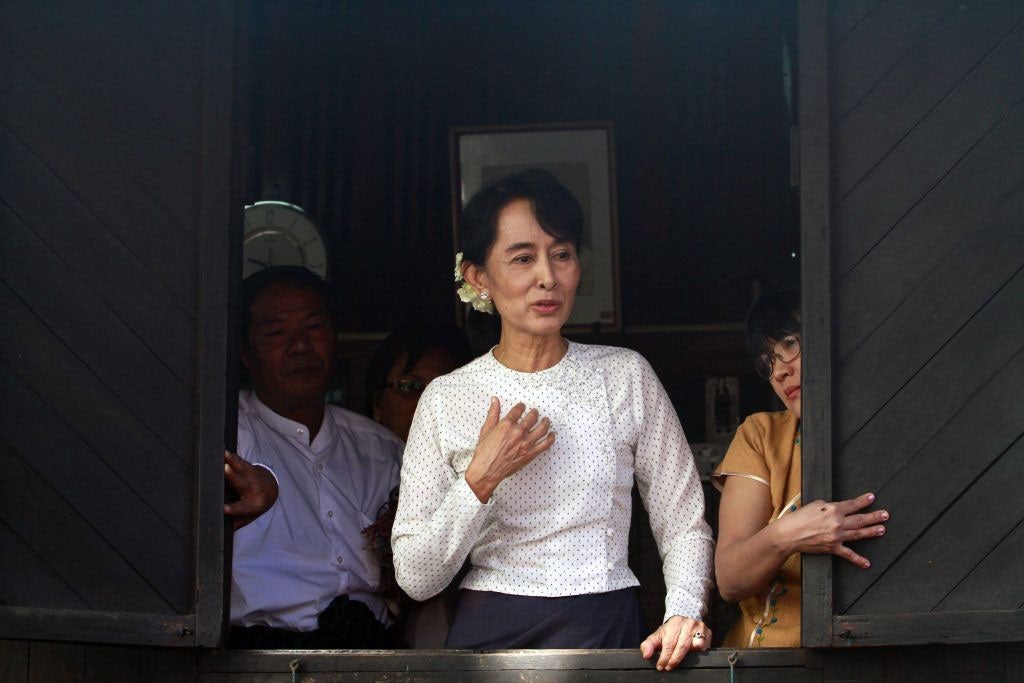Simon Calder: Tyranny and the tourist's conscience
The man who pays his way

Your support helps us to tell the story
From reproductive rights to climate change to Big Tech, The Independent is on the ground when the story is developing. Whether it's investigating the financials of Elon Musk's pro-Trump PAC or producing our latest documentary, 'The A Word', which shines a light on the American women fighting for reproductive rights, we know how important it is to parse out the facts from the messaging.
At such a critical moment in US history, we need reporters on the ground. Your donation allows us to keep sending journalists to speak to both sides of the story.
The Independent is trusted by Americans across the entire political spectrum. And unlike many other quality news outlets, we choose not to lock Americans out of our reporting and analysis with paywalls. We believe quality journalism should be available to everyone, paid for by those who can afford it.
Your support makes all the difference.You probably have a travel boycott or two of your own. I first flew on Ryanair 20 years ago. After a mix-up at Dublin that cost me £40, I vowed I would never fly on the airline again. That boycott ended the moment I needed to get from Stansted to Prestwick, but I have had more success in spurning the Venezuelan airline Viasa, Tirana's grim Hotel Kalaja and Middlesbrough on a Saturday night, following unfortunate experiences with each of them. (My vow never to fly on Viasa again, prompted by inflight poisoning, was made easier when the dismal airline went bust.)
Tourism boycotts operate on many levels. In southern Africa, visitor numbers suggest plenty of travellers are informally choosing Zambia over Zimbabwe. It seems the former Southern Rhodesia is benefitting from tourists' reluctance to spend any cash that might sustain the appalling Robert Mugabe.
After the Tiananmen Square massacre – or was it oppression in Tibet? – the People's Republic of China appeared on a good few no-go lists. And while there are many good motives for visiting the United States, you may be equally adept at finding reasons not to visit, from US belligerence in other people's countries to the draconian admission procedures.
Yet voting with your wallet, or your conscience, is an imperfect weapon. The success or failure of any boycott – whether deployed by an individual tourist, a newspaper travel section or the entire UN – is difficult to measure.
The Independent Traveller has covered many destinations whose human-rights records are at best questionable. Consider just one category of country: alluring tropical islands. Sri Lanka and Cuba are hardly bastions of tolerant liberal democracy – yet we explain why you might want to go, and how best to get there.
ppp For the past 18 years, one exception has been Burma – or Myanmar, as the dictatorship deemed the country should be known. Our boycott began when our writer, Harriet O'Brien, met the democracy leader, Aung San Suu Kyi, on a visit to Rangoon. The generals in charge decreed 1996 to be Visit Myanmar Year, and used forced labour to build many of the tourist facilities to support the marketing drive. Suu Kyi asked British tourists to boycott the country; as a newspaper, we agreed that a visit could be tantamount to condoning slavery.
Last year Suu Kyi's view softened. Her party now invites "visitors who are keen to promote the welfare of the common people". So today our boycott ends.
The natural follow-up question: why draw the line almost at the bottom of the human-rights league table? How can we justify going any further down the slippery slope of oppression than Scandinavia?
Partly because we want to serve our readers' interests and aspirations. Travellers have long shown a healthy appetite for nations with unsavoury rulers. Before the Arab Spring, we offered guidance to Tunisia's beaches and the historic treasures of Egypt even as presidents Ben Ali and Mubarak stifled dissent.
Most importantly, travel is by its nature enriching: to you, the tourist, emotionally; to your hosts, economically. These benefits, we feel, should be denied only in extremis. That is why we stray beyond a weekly 48 Hours in Trondheim coupled with a Traveller's Guide to Jutland.
Let us know what you think of this policy – and the places you regard as beyond the pale, and deserving of a boycott.
The freedom to take direct action
The longer your memory, the more places you need to avoid. Travellers who deplored Apartheid might choose to steer clear of Cape Verde. The islands' main airport, Sal, was used as a refuelling stop by South African Airways between Johannesburg and London when other African nations refused permission.
In 2012, football fans who support neither Arsenal nor Manchester City may wish to choose a Gulf-based airline other than the clubs' respective sponsors, Emirates and Etihad. Gulf Air is an obvious alternative – except that it is based in Bahrain, where anti-government protesters have been treated abysmally.
Yet perhaps you can make an effective protest by flying. Gulf Air's fare of £398 return to Mumbai (on Opodo.co.uk) looks so low that the airline may be losing money on the deal. So, fly Gulf Air, strike a blow for freedom.
travel@independent.co.uk
Join our commenting forum
Join thought-provoking conversations, follow other Independent readers and see their replies
Comments